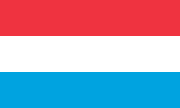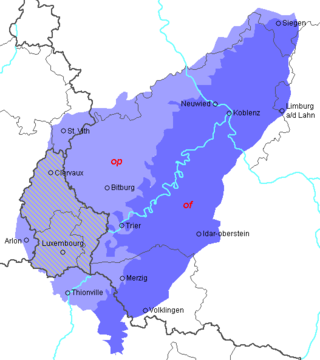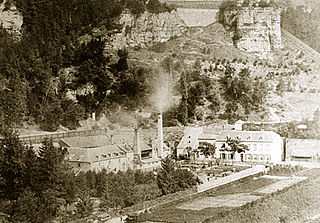
Luxembourg competed at the 2011 World Aquatics Championships in Shanghai, China between July 16 and 31, 2011.

Luxembourg competed at the 2011 World Aquatics Championships in Shanghai, China between July 16 and 31, 2011.
Luxembourg qualified 3 swimmers. [1]
| Athlete | Event | Heats | Semifinals | Final | |||
|---|---|---|---|---|---|---|---|
| Time | Rank | Time | Rank | Time | Rank | ||
| Jean-François Schneiders | Men's 50m Backstroke | 26.70 | 26 | did not advance | |||
| Men's 100m Backstroke | 57.03 | 42 | did not advance | ||||
| Men's 200m Backstroke | 2:03.68 | 28 | did not advance | ||||
| Laurent Carnol | Men's 50m Breaststroke | 28.63 | 33 | did not advance | |||
| Men's 100m Breaststroke | 1:01.57 | 30 | did not advance | ||||
| Men's 200m Breaststroke | 2:12.56 | 12 Q | 2:12.23 | 15 | did not advance | ||
| Raphaël Stacchiotti | Men's 200m IM | 2:00.87 | 20 | did not advance | |||
| Men's 400m IM | 4:20.64 | 20 | did not advance | ||||

Luxembourg, officially the Grand Duchy of Luxembourg, is a landlocked country in Western Europe. It is bordered by Belgium to the west and north, Germany to the east, and France to the south. Its capital and most populous city, Luxembourg City, is one of the four institutional seats of the European Union and the seat of several EU institutions, notably the Court of Justice of the European Union, the highest judicial authority in the EU. Luxembourg's culture, people, and languages are greatly influenced by its much larger neighbours France and Germany; for example, Luxembourgish, a Germanic language, is the only national language of the Luxembourgish people and of the Grand Duchy of Luxembourg, French is the only language for legislation, and all three – Luxembourgish, German and French – are used for administrative matters in the country.

The economy of Luxembourg is largely dependent on the banking, steel, and industrial sectors. Citizens of Luxembourg enjoy the highest per capita gross domestic product in the world, according to an IMF estimate in 2022. Among OECD nations, Luxembourg has a highly efficient and strong social security system; social welfare expenditure stood at roughly 21.9% of GDP.

The Luxembourg Armed Forces are the national military force of Luxembourg. The army has been a fully volunteer military since 1967. As of December 2018, it has 939 personnel.

Luxembourgish is a West Germanic language that is spoken mainly in Luxembourg. About 300,000 people speak Luxembourgish worldwide.

Luxembourg, also known as Luxembourg City, is the capital city of Luxembourg and the country's most populous commune. Standing at the confluence of the Alzette and Pétrusse rivers in southern Luxembourg, the city lies at the heart of Western Europe, situated 213 km (132 mi) by road from Brussels and 209 km (130 mi) from Cologne. The city contains Luxembourg Castle, established by the Franks in the Early Middle Ages, around which a settlement developed.

Cargolux, legally Cargolux Airlines International S.A., is the flag carrier cargo airline of Luxembourg with its headquarters and hub at Luxembourg Airport. With a global network, it is among the largest scheduled all-cargo airlines in the world. Charter flights and third party maintenance are also operated. It has 85 offices in over 50 countries as of 2018, and operates a global trucking network to more than 250 destinations.

The Grand Duke of Luxembourg is the head of state of Luxembourg. Luxembourg has been a grand duchy since 15 March 1815, when it was created from territory of the former Duchy of Luxembourg. It was in personal union with the United Kingdom of the Netherlands until 1890 under the House of Orange-Nassau. Luxembourg is the world's only sovereign Grand Duchy and since 1815, there have been nine monarchs, including the incumbent, Henri.

Esch-sur-Alzette is a city in Luxembourg and the country's second-most populous commune, with a population of 36,625 inhabitants, as of 2023. It lies in the south-west of the country, on the border with France and in the valley of the Alzette, which flows through the city. The city is usually referred to as just Esch; however, the full name distinguishes it from the village and commune of Esch-sur-Sûre which lies 45 kilometres further north. The country's capital, Luxembourg City, is roughly 15 km (9.3 mi) to the north-east. Esch was selected as the European Capital of Culture for 2022, alongside Kaunas and Novi Sad.

Henri is Grand Duke of Luxembourg, reigning since 2000. He is the eldest son of Grand Duke Jean and Princess Joséphine-Charlotte of Belgium, as well as a first cousin of King Philippe of Belgium. In 2019, his net worth was estimated around US$4 billion.

Prince Guillaume, Hereditary Grand Duke of Luxembourg, is the heir apparent to the Luxembourg throne since October 2000 and regent of the country since October 2024, as the son of Grand Duke Henri and Grand Duchess Maria Teresa. He is set to become Grand Duke on 3 October 2025 upon the abdication of his father.

The Luxembourg national football team is the national football team of Luxembourg, and is controlled by the Luxembourg Football Federation. The team plays most of its home matches at the Stade de Luxembourg in Luxembourg City.
The Music of Luxembourg is an important component of the country's cultural life. The new Philharmonie concert hall provides a venue for orchestral concerts while opera is frequently presented in the theatres. Rock, pop and jazz are also popular with a number of successful performers. The wide general interest in music and musical activities in Luxembourg can be seen from the membership of the Union Grand-Duc Adolphe, the national music federation for choral societies, brass bands, music schools, theatrical societies, folklore associations and instrumental groups. Some 340 music groups and associations with over 17,000 individual members are currently represented by the organization.

Luxembourg has participated in the Eurovision Song Contest 38 times since its debut at the first contest in 1956. The Luxembourgish national broadcaster, RTL Lëtzebuerg (RTL), participates in the contest representing the country. The nation participated in all but one event between 1956 and 1993, only missing the 1959 contest. After finishing among the bottom seven countries in 1993, Luxembourg was relegated and prevented from competing in 1994. The nation declined to return to the contest in 1995, and would make no further appearances over the next three decades. The country returned to the event for the first time in 31 years in 2024.

The culture of Luxembourg refers to the cultural life and traditions of Luxembourg. Most citizens are trilingual, speaking French and German in addition to the Germanic national language of Luxembourgish. Although its contributions to the arts are not largely known outside its borders, Luxembourg has a rich cultural history, especially in music, painting and photography. Its evolving museums, concert halls, theatres and galleries testify to its citizens' growing appreciation of culture.
Luxembourg's cuisine reflects the country's position between the Latin and Germanic countries, influenced by the cuisines of neighbouring France, Belgium and Germany. Recently, it has been influenced by the country's many Italian and Portuguese immigrants. As in Germany, most traditional, everyday Luxembourg dishes are of peasant origin, in contrast to the more sophisticated French fare.

Xavier Bettel is a Luxembourgish lawyer and politician who serves as the 14th deputy prime minister of Luxembourg and as the minister for Foreign Affairs since 2023. He served as the 24th prime minister of Luxembourg from 2013 to 2023. He was a member of the Chamber of Deputies from 1999 to 2013 and mayor of Luxembourg City from 2011 to 2013.

Lidl–Trek is a professional road bicycle racing team at UCI WorldTeam level licensed in the United States. Formerly RadioShack–Nissan, in 2014, Trek took over the ownership of the team and its ProTeam License.

Photography in Luxembourg is often associated with two figures who were born in Luxembourg but left when very young: Edward Steichen (1879–1973) was an American who made outstanding contributions to fashion and military photography during the first half of the 20th century; while Gabriel Lippmann (1845–1921), a Frenchman, was awarded the Nobel prize in physics for his achievements in colour photography. There are however many Luxembourg nationals who are remembered for recording the development of the city of Luxembourg and the country as a whole from the 1850s to the present.

Luxembourgish art can be traced back to Roman times, especially as depicted in statues found across the country and in the huge mosaic from Vichten. Over the centuries, Luxembourg's churches and castles have housed a number of cultural artefacts but these are nearly all ascribed to foreign artists. The first examples of art with a national flavour are paintings and maps of the City of Luxembourg and its fortifications from the end of the 16th until the beginning of the 19th century, although these too were mostly created by foreign artists. Real interest in art among the country's own citizens began in the 19th century with paintings of Luxembourg and the surroundings after the country became a grand duchy in 1815. This was followed by interest in Impressionism and Expressionism in the early 20th century, the richest period in Luxembourg painting, while Abstraction became the focus of art after the Second World War. Today there are a number of successful contemporary artists, some of whom have gained wide international recognition.

The involvement of the Grand Duchy of Luxembourg in World War II began with its invasion by German forces on 10 May 1940 and lasted beyond its liberation by Allied forces in late 1944 and early 1945.